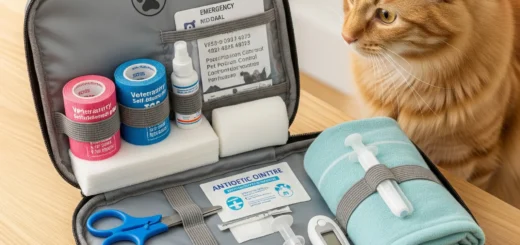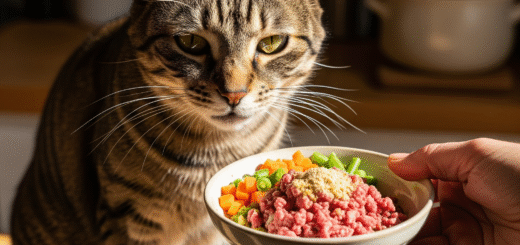Quality Pet Care: Essential Tips for a Happy, Healthy Companion

It is vital that you provide quality pet care to your furry companion to ensure a long and healthy life for him or her. Whether caring for a playful puppy, a calm cat, or any other beloved pet, your attention and effort can make all the difference to their well-being. Pets depend on us for more than food and shelter — they need love, safety, and daily care.
First-time pet owners may find it challenging to learn how to take care of their pet. Even experienced owners can benefit from brushing up on the basics. Quality pet care includes nutrition, regular exercise, proper grooming, and medical attention. It also means spending time with them, understanding their behavior, and creating a stress-free environment.
Pets that receive consistent care live longer, have fewer health problems, and show better behavior. They feel secure and form stronger bonds with their owners. Just like people, pets have emotional needs too. They enjoy routine, affection, and activities that keep their minds active.
This guide will help you understand the core elements of quality pet care. We’ll discuss food, training, health checks, playtime, grooming, and more. These small daily habits can lead to significant results over time.
Taking care of your pet properly brings joy into your life and theirs, regardless of how young or old they are, how small or how large they are. Taking proper care of your pet, you can give your pet the longest life possible — full of love, health, and happiness.
1. Identifying quality pet care
Quality pet care means doing everything needed to keep your pet healthy, safe, and happy. It’s not just about feeding or giving them a place to sleep — it’s about looking after their body, mind, and emotions daily. Animal care includes providing the right food, ensuring they get enough exercise, keeping them clean, and taking them to the vet regularly.
It also means making your home safe where your pet feels comfortable and loved. Pets, like people, need attention and a routine to feel secure. Spending time with your pet helps build a strong bond and prevents behavior problems.
It is important to provide regular care and love to all animals, including puppies, kittens, and older pets. It is more likely that your pet will live a longer, healthier, and happier life when you focus on quality pet care.

2. Providing a nutritious diet
Healthy and well-being are dependent on your pet’s diet. Just like humans, pets need proper nutrition to thrive, and each pet’s dietary needs can vary depending on their age, breed, and health condition. To ensure your pet gets the most nutritious nutrition, consult with your veterinarian. They can recommend the ideal food for your pet’s specific needs.
Always provide your pet with fresh water; hydration is as critical as food. A healthy water source helps maintain healthy digestion and bodily function. Avoid feeding your pet human food, as some items, like chocolate, grapes, and onions, can harm animals. Stick to high-quality pet food designed for your pet’s nutritional requirements to keep them strong and energetic.
Proper nutrition prevents health problems and supports a long, happy life.
3. Exercise and mental stimulation regularly
Quality pet care includes ensuring your pet gets enough physical activity to stay healthy and happy. Maintaining a healthy weight, building muscle, and balancing your pet’s energy levels are all benefits of regular exercise. Physical activity is key to your pet’s overall health, whether it’s walks, playtime in the yard, or active games.
Mental stimulation and physical exercise are essential to the well-being of your pet. Their minds are challenged by interactive toys, puzzle feeders, and training exercises that keep them engaged and engaged with their toys. Mental stimulation prevents boredom, which can lead to destructive behavior or anxiety.
The most effective way for your pet to stay happy and healthy is to give him or her both physical and mental exercise. The combination of regular playtime and varied activities keeps them mentally and physically fit and provides them with the enrichment they need to feel fulfilled and satisfied emotionally. If you incorporate both into your pet’s daily routine, it will be easier to maintain a balanced, healthy lifestyle.
4. Routine veterinary check-ups
Veterinary visits are essential for your pet’s health and well-being in the long run. Veterinarians can detect potential health issues early, sometimes before symptoms appear. The earlier problems are detected, the quicker they can be treated, and the faster your pet can recover.
The vaccination process is also an important part of your veterinarian’s routine health assessment. Animals benefit from vaccinations because they protect them against dangerous diseases. Veterinary visits should also include dental care, since poor dental hygiene can cause painful infections and other health problems.
Treatments for fleas, ticks, and worms are also important to prevent parasites. They can cause serious health problems if not managed properly. Maintaining your pet’s health, happiness, and protection requires regular vet visits.
5. Grooming and hygiene.
Regular grooming is essential to quality pet care, keeping your pet clean, comfortable, and healthy. Maintaining your pet’s coat with regular brushing reduces shedding and mats and promotes healthy skin. The regular brushing of your skin also allows you to detect irritations, parasitic infestations, and unusual lumps and bumps.
It is equally important to trim your pet’s nails to prevent overgrowth, which can cause discomfort or difficulty walking. It can even hurt their paw pads if their nails are overgrown. Additionally, cleaning your pet’s ears prevents ear infections, especially for breeds with floppy ears.
Grooming is also an excellent way to bond with your pet and check for health issues. It is important to groom your pet on a regular basis to maintain their hygiene and overall health.
6. Promoting workplace safety
Ensure that your home is pet-proof by removing hazards such as toxic plants, small objects, and chemicals. Make sure that the feeding area has a comfortable bed, toys, and a designated place for feeding.
7. Training and socialization
Training and socializing your pet are vital components of quality pet care. They promote positive behavior and reduce anxiety in your pet. Developing basic commands for your pet, such as sit, stay, and come, improves communication between you and your pet. Training your pet also helps prevent behavioral issues and ensures it responds well to situations of all kinds.
The importance of socialization goes beyond exposing your pet to new environments, other animals, and people. It promotes pet confidence and reduces fear-based behaviors or aggression later in life when socialization occurs early.
Pets who are taught positive reinforcement techniques such as treats and praise are more likely to repeat desired behaviors. Using this approach strengthens your bond with your pet and builds trust. Training and socialization ensure that your pet behaves well and feels emotionally secure in different social situations.
8. Behavior and health monitoring
Keep an eye on your pet’s behavior and health. Behavioral changes, energy level fluctuations, and appetite changes can all indicate health issues. Regularly monitor your pet for signs of illness and consult your veterinarian if necessary.

9. Providing emotional support
Quality pet care extends beyond meeting your pet’s physical needs—it’s equally critical to address their emotional well-being. Pets are social animals that thrive on love, attention, and companionship. Spending quality time with your pet strengthens your bond and gives them the emotional support they need to feel secure and happy.
Offer affection by petting, cuddling, and playing with your pet. These simple acts reduce stress and anxiety, especially when pets feel nervous or lonely. Be attentive to your pet’s emotional signals, as they communicate their feelings through body language and behavior. Understanding these cues will help you provide the care they need, whether it’s more attention, comfort, or stimulation.
When pets feel loved and emotionally supported, they are more confident, happy, and healthy.
10. Emergency Preparedness
Being prepared for emergency is an essential part of quality pet care. Accidents and health crises can happen unexpectedly, so having a plan can make all the difference. Create a pet first aid kit with basic supplies like bandages, antiseptic wipes, and tweezers. You should also know basic first aid techniques, such as stopping bleeding or performing CPR on your pet in an emergency.
It’s also essential to keep a list of emergency contacts handy. This should include your primary veterinarian and a 24-hour emergency clinic if your regular vet isn’t open. Having this information readily accessible ensures you won’t be caught off guard during an urgent situation, allowing you to act quickly and calmly.
By being prepared, you can provide the most effective care for your pet, even in stressful situations.
Conclusion
Quality pet care is not just about fulfilling your pet’s basic needs—it’s about providing a loving, supportive environment where they can thrive. By focusing on proper nutrition, regular exercise, grooming, emotional support, and veterinary care, you can ensure your pet enjoys a long, healthy, and happy life.
Pets are more than companions; they become part of the family. When you care for them properly, physically and emotionally, you help them lead a fulfilling life filled with love and joy. By following these vital yet straightforward guidelines, you’re improving their health and strengthening your bond.
Quality pet care makes a lasting difference in a pet’s well-being and happiness, whether it’s a playful dog, a curious cat, or a furry friend. Give your pet the care it deserves and enjoy its rewarding companionship.
FAQs
Q1: How often should I take my pet to the vet?
A: Regular veterinary check-ups are essential for early detection of health problems. Consult your vet for a schedule that suits your pet’s age and health condition
Q2: What should I feed my pet?
A: Provide a balanced diet tailored to your pet’s species, age, and health condition. Consult your veterinarian to choose the right food.
Q3: How can I keep my pet mentally stimulated?
A: Engage your pet with interactive toys, puzzle feeders, and training sessions to keep their minds active and prevent boredom.
Q4: What are the signs that my pet is not feeling well?
A: Changes in appetite, energy levels, or behavior can indicate health issues. Monitor your pet closely and consult your vet if you notice any concerning signs.
Q5: How can I ensure my pet’s safety at home?
A: Pet-proof your home by removing hazards like toxic plants, small objects, and chemicals. Provide a comfortable bed, toys, and a designated feeding area.
















Recent Comments